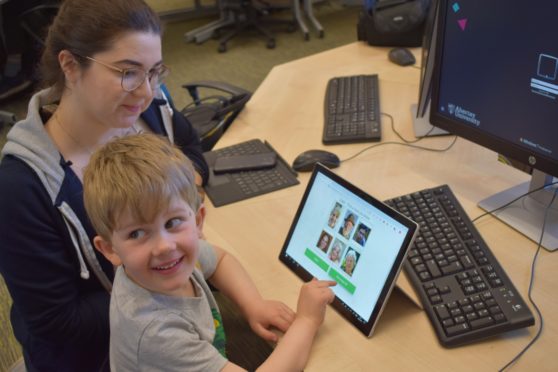Experts in cyber security at Abertay University have developed unique software to create passwords made of images instead of words.
Kidzpass was created specifically for youngsters aged three to five years who often struggle when using words to log onto computers at school or nursery.
The new software lets children click onto a face that is known to them, such as a family member or friend, which also prevents password sharing.
Ethical hacking student Michaela Stewart, who developed the tool, said it was important for children to understand the importance of passwords.
She said: “Many children in Scotland are required to use passwords effectively to log into computer systems at school as part of the Curriculum for Excellence.
“This makes a lot of sense but it can be complicated for younger children who are often unable to read or write.
“That results in children sharing passwords, or teachers typing them in, making it difficult for kids to understand the importance of keeping passwords private.
“It’s not the ideal first lesson for children in cyber security.
“What’s more, children often require passcodes to get in through school doors. That’s information we wouldn’t necessarily want them to share.
“Kidzpass allows children to use information unique to them to log in to computers in a simple and safe way.”
The announcement has come during the first Cyber Week Scotland, which aims to showcase innovation in this sector, highlight good practice and career opportunities.
Last year it was revealed Abertay University would lead a new £11.7 million project to create a cyber security research centre as part of the Tay Cities deal.
Dr Suzanne Prior, an ethical hacking lecturer at Abertay, said: “At face value, you might wonder why young children need unique passwords.
“However, recent research suggests that teenagers and millennials have poorer password habits than older adults.
“This is obviously surprising as they have grown up with technology and security messages.
“The hope is that by improving password habits at a young level, this can be carried on into adulthood and we can have a generation of people who’re more cyber security confident.”










